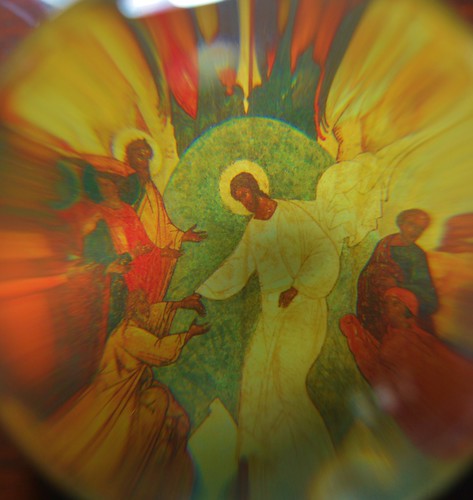“God has prepared us, created and blessed us, ‘for glory’ (Rom. 9:23). ‘You have died,’ Paul tells the Colossians, ‘and your life is hid with Christ in God. When Christ appears – He who is your life – then you also will appear with Him in glory!’ (Col. 3:3-4).
Caught up in a world of sin, dwelling in a ‘body of sin’ subject to death and corruption, we are nevertheless called, ‘destined’, to participate fully in the glory of the Risen Christ. Through ascetic practice, as through eucharistic communion, that participation becomes a present reality that little by little transforms our body of death into a true body of life and celebration. This is the perspective that makes sense out of our lenten asceticism. Against this perspective there is the subtle and powerful temptation to turn the Great Fast into an end in intself. We adopt lenten practices of bodily prostrations because of their physical benefit; we abstain from meat and perhaps dairy products in order to purge the body of toxins, or to lose weight, or to be able to say ‘we did it’. This popular distortion of the reason for lenten discipline goes hand in hand with an obsessive need to ‘do it right’, exemplified by a close examination of every carton we purchase in the grocery store, to be sure it contains not a trace of meat of dairy.
We pride ourselves on our ability to sacrifice some pleasure (movies, alcohol, sex, ice cream), at least during the first and fifth weeks of Great Lent. Yet the Old Adam remains very much alive. Our sacrifice all too often translates into narcissistic self-congratulation and all too seldom issues in self-giving love. We still harbor the same old grudges, still neglect the anonymous undesirables in our neighborhoods, and still take vengeance when the opportunity arises. In St. Basil’s words, we abstain from meat yet devour our brother!” (John Breck, Longing for God: Orthodox Reflections on Bible, Ethics, and Liturgy, p 140)



